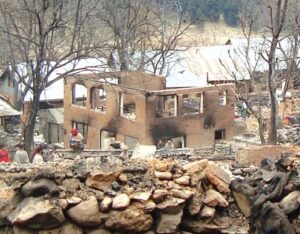5th January 1949: Seven Decades of Denial and Repression
Syed Mehreen Jeelani
Every year, on the 5th of January, the international community is reminded of an unresolved struggle—the right to self-determination. This day marks the anniversary of a landmark resolution adopted by the United Nations Commission for India and Pakistan (UNCIP) on 5 January 1949. The resolution affirmed the inalienable right of the Kashmiri people to determine their future through a free and impartial plebiscite under the auspices of the United Nations. But, despite this historic commitment, the promise remains unfulfilled, and the people of Kashmir continue to suffer under one of the most prolonged occupations in modern history.
The principle of self-determination is a cornerstone of international law. It is enshrined in foundational United Nations treaties, including the International Covenant on Civil and Political Rights and the International Covenant on Economic, Social, and Cultural Rights. This principle has been repeatedly reaffirmed by the UN General Assembly in its annual resolutions on self-determination. However, the situation in Indian Occupied Jammu and Kashmir starkly contrasts with these international commitments. For over seven decades, the people of Kashmir have been denied their fundamental right to decide their destiny, subjected instead to relentless repression and systemic subjugation.
India’s occupation of Jammu and Kashmir, spanning over 76 years, is a proof of the international community’s failure to enforce its own resolutions. The events of recent years have only deepened the crisis. On 11 December 2023, the Indian Supreme Court issued a judgment on the status of Jammu and Kashmir, further consolidating India’s occupation. This decision was neither impartial nor aligned with international law. It was a move to undermine the region’s disputed status and to impose India’s narrative on a conflict that is far from resolved. Such actions expose the glaring contradiction between India’s domestic policies and its obligations under international law.
India’s approach in the occupied territory is rooted in a strategy of coercion and control. The revocation of Articles 370 and 35A in August 2019, which stripped Jammu and Kashmir of its semiautonomous not only violated India’s own constitutional provisions but also flouted the commitments made to the international community. The aftermath has been a grim saga of demographic engineering, economic exploitation, and cultural erasure. By redrawing electoral boundaries, issuing domicile certificates to non-Kashmiris, and encouraging settler colonialism, India is attempting to alter the demographic composition of the region, thereby undermining its Muslim-majority character.
The human cost of this occupation is staggering. Kashmiris live under an ever-tightening noose of militarization, with an estimated 1000,000 Indian troops stationed in the region, making it one of the most densely militarized zones in the world. Human rights violations are rampant and well-documented by international organizations, including Amnesty International and Human Rights Watch. Arbitrary detentions, enforced disappearances, extrajudicial killings, and the use of pellet guns against civilians—many of them children—are everyday realities in the occupied territory. The suppression of dissent has reached new heights, with journalists, activists, and political leaders silenced through draconian laws and state-sponsored intimidation.
India’s attempts to suppress the Kashmiri resistance are not limited to physical oppression. A parallel war is being waged on the cultural and ideological front. Efforts to de-Islamize the region and erode its cultural identity are evident in the promotion of policies and programs that are alien to the ethos of Kashmiri society. By introducing laws and initiatives that contradict the deeply rooted Islamic values of the population, India aims to sever the people’s connection with their heritage and pave the way for cultural assimilation.
The international community’s response to this crisis has been disappointingly muted. Despite the clear violations of international law and human rights, geopolitical interests and economic considerations have often taken precedence over justice and accountability. The lack of a robust response has emboldened India to continue its policies with impunity. However, silence is not a neutral stance; it is complicity. The world must recognize that the Kashmiri struggle for right to self-determination is not merely a regional issue but a litmus test for the international community’s commitment to its own principles.
The right to self-determination is not a privilege to be granted or withheld at the whim of powerful states. It is an inalienable right of all peoples. The international community must honor its commitments and take concrete steps to hold India accountable for its actions in the occupied region. This includes reasserting the UN resolutions on Kashmir, supporting independent investigations into human rights violations, and pressing for an immediate end to the occupation.



